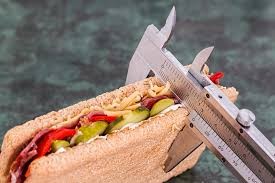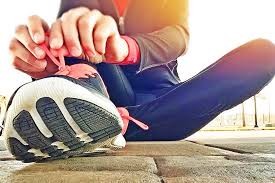×
Stoutness Exercises - this is what Winnie the Pooh calls his exercises. In one episode, the little bear completes his then goes to visit Rabbit. After several pots of honey, Pooh Bear finds himself stuck in Rabbit’s burrow. This beautifully illustrates that whilst exercising is fantastic, we do also need to take care of our diets to prevent the pounds from piling on. It is one of several answers to the most common question I am asked:
“I’m exercising all the time, eating healthily, I’ve tried x, y, & z diets but can’t lose weight! What can I do, can you help?!”
Don't panic - I'll tell you when to panic! You haven't reached an impasse and you don't need to resign yourself to being overweight forever. There are several possible reasons but, as is so often the case, the simplest explanation tends to be the right one. In truth, you are highly unlikely to be suffering from a rare genetic condition that affects your metabolism, you do not have heavy bones and your thyroid gland is probably fine and dandy.
Firstly, don’t stop exercising just because you are not seeing results on the scales or in the mirror. Being fit is so beneficial for your health staving off cardiovascular heart disease, diabetes and cancers to name the major killers. In fact, research has shown that, if you're overweight but also fit, you are significantly more protected from these diseases than if you were unfit. However, being fit and maintaining a healthy weight is even better – so how can you achieve that?

The first major trap that people fall into is over-estimating the calories burned during exercise and assume that a trip to the gym is a green light for platefuls of food. Combine this with a general ignorance as to the number of calories that we should be consuming in the day and a general ignorance as to the number of calories in our food and it is not surprising that we get it wrong. You need to be calorie deficient to lose weight.
Being calorie deficient leads us to a further two group of dieters; those who follow extremely low calorie diets and those who think they are following extremely low calorie diets! Let’s deal with the latter first. I often hear people say that they can’t lose weight because they don’t eat enough and are in a starvation response. This is not biologically possible. You do not see obese people on the news when they are reporting on famines. Calories in versus calories out. In one study dieters who claimed to be eating 1200 calories a day were recruited and their diets studied. The researchers found that there was simply a “discrepancy between self-reported and actual caloric intake and exercise in these subjects”. Very simply, if you are not losing weight, you are eating too much.
A genuinely low, or very low calorie diet will see weight loss but is neither efficient or healthy. Dieters will typically be tired, cold, hungry, moody, suffer withdrawal symptoms, be nutrient deficient and potentially set up some negative psychological associations with food. In genuinely low calorie diets the starvation response will be stimulated. It is called adaptive thermogenesis. What this means is that your metabolic rate will drop as your body tries to conserve energy. But now your calorie intake more closely matches the calories you are burning and weight loss will slow down. You have shifted the goal posts. Extremely low calorie diets will also decrease leptin production (a hormone required for fat metabolism) and decrease testosterone production (needed to maintain muscle mass).
This decrease in metabolism can explain why those who ‘crash’ diet put on more weight than they started with. In the first 2-3 weeks of calorie restriction the body predominately loses stored sugars, protein from muscle, water and a little fat. It's only in weeks 3-4 that the body starts to efficiently burn fat. But in those first couple of weeks the loss of muscle mass decreases your metabolism so that when the ‘diet’ finishes and you start eating as you did pre-diet, weight gain is imminent.

This nicely takes us back full circle to exercise as the implementation of a good exercise regime with weight bearing exercises to promote muscle growth will minimise this reduction in metabolism and maximise weight loss. This is especially important as we get older since we naturally lose muscle mass as part of the ageing process. So yes, your calorie requirements do decrease as you get older unless you work to maintain that muscle mass.
And finally, a nutritionally balanced diet is very important since all of our macro and micro-nutrients are dependent upon each other for optimal functioning. This includes fat which should not be banished from a weight loss regime but is in fact essential to help the body regulate fat metabolism.
So, just because you have given up the alcohol and chocolates and swapped to healthy food and increased your level of exercise you will not lose weight if you are still meeting your calorie needs. Healthy food is not necessarily low calorie and neither is low fat food either! Maybe it's time to re-assess, research and be honest - know your calorie requirements and know your food!
***
SCBP24th April 2017
Perthshire's only online magazine